Are you able to get undressed?
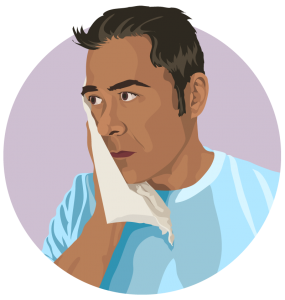
- Blot, do not rub, your skin, face, hands, and hair with a moist wipe, wet cloth, or damp paper towel to remove the chemical.
- Take off as many of your clothes as you can, even if only to your underwear. Taking off your clothes removes 80%-90% of the chemical.
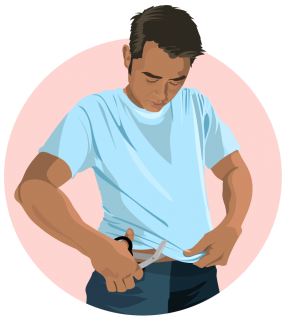
- Cut off clothing if it has to be taken off over your head. If you cannot cut clothing off, hold your breath and close your eyes when you pull it over your head so you don’t get the chemical in your eyes, nose, and mouth.
- Put clothes in a plastic bag, close it up, and put it in a second plastic bag. If you wear contact lenses, take them out and put them in the bag, too.
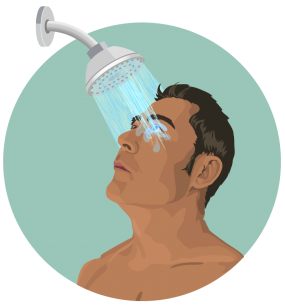
- Wash your hair, face, hands, and skin. Wash from head to feet with lukewarm water and mild soap, if available, for at least 2-3 minutes. Try not to let the water run into your eyes, nose, and mouth. Do Not Scrub!
- Flush your eyes for 10-15 minutes with lukewarm water if your eyes are burning or you can’t see normally. Do not use eyedrops.
- Do not drink fluids, and do not make yourself throw up if you swallowed the chemical.

- Dry your hair, face, hands, and skin to remove any remaining chemical. Use anything that will soak up water. Put the used things in a plastic bag, close it up, and place it in a second plastic bag. Close it up, too.
- Dress in any available clean clothes. Try not to touch anything you think might be contaminated.
- Put on a mask and gloves and repeat steps 1-10 for children and pets.
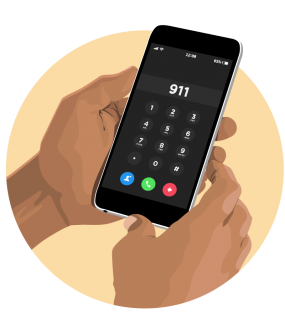
- Get help by calling the Poison Control Center at 800-222-1222 or calling 911 or going to the nearest hospital.
What do you do with the contaminated clothes and other things you used to decontaminate?
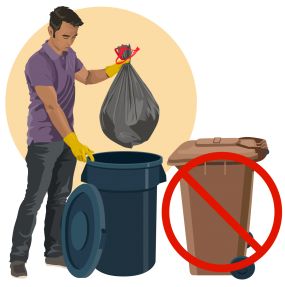
- Wear gloves and put the plastic bags in a closed container where they are unlikely to be opened by accident to prevent others from coming in contact with the chemical.
- If you do not have gloves, use plastic bags to cover your hands. Do not put the bags in the regular trash!
- Listen to the radio, television, or check your phone or mobile news app for updates from police, fire, or local officials for instructions on what to do with your contaminated things.